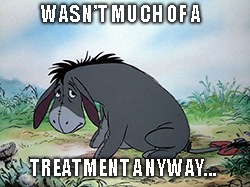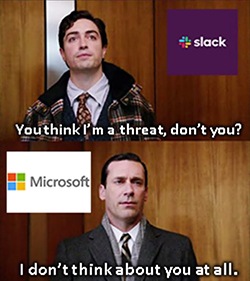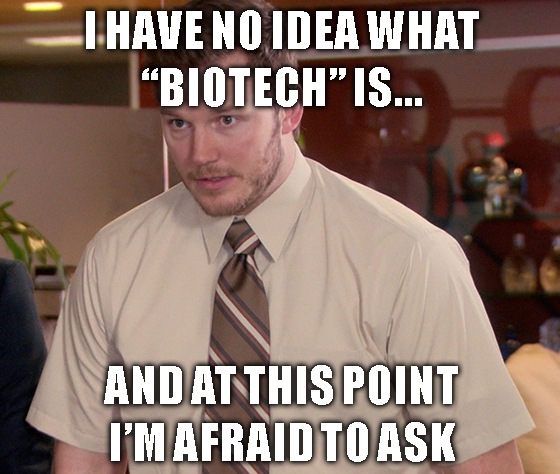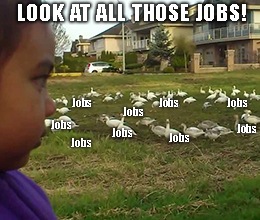The Right Prescription for Massive Returns
Today, dear readers, we’re going to cover a topic I just know you all love and adore: biotechnology.
I can hear the groans already … and I get it. All those big scary words that have no real meaning to you at all. It’s like they’re talking about some surreal, otherworldly threat that will never — ever — impact you. So, why would you invest in them?
And that’s really the crux of the problem when it comes to investing in biotech stocks. You invest in what you know and can understand. It’s one of the axioms of investing, after all.
But, let’s be honest … does anyone outside of the industry really know what 7-nanometer microchips are? Or what it means to be able to achieve real-time HD ray-tracing graphics? I’m betting the answer is no, and yet we still invest in Advanced Micro Devices Inc. (Nasdaq: AMD) and Nvidia Corp. (Nasdaq: NVDA).
Getting back to the point, I’m bringing up biotech stocks today because the sector is on a tear. For instance, the SPDR S&P Biotech ETF (NYSE: XBI) is up more than 22% in the past month. By comparison, the S&P 500 Index is up a mere 7.7%.
There are two reasons for this sudden outperformance in biotech stocks:
- Increased merger and buyout activity.
- A flood of clinical trial data.
We talked about buyouts on Tuesday when Astellas Pharma Inc. (OTC: ALPMY) bought Audentes Therapeutics Inc. (Nasdaq: BOLD) for a whopping $60 per share in cash. It was just the latest blockbuster biotech deal in a long string of buyouts from Big Pharma looking to get into gene therapy and cutting-edge biotech treatments.
Clinical trials are building to a head this week. We have trial data on everything from lupus (sometimes, it is lupus) and depression to Alzheimer’s and heart disease. We’re covering some of that trial data today — and the winners and losers that came out of it a bit later.
So, keep reading.
The Takeaway:
If you’re not convinced yet that you should consider investing in biotech stocks, there’s a couple of other really good reasons to seriously consider the sector.
The first is health care. The Centers for Medicare & Medicaid Services projects that the U.S. will spend nearly $6 trillion on health care costs by 2027. Of that $6 trillion market, biotech spending is expected to grow to more than $775 billion by 2024.
This is a massive market.
Bigger than semiconductors.
Bigger than the cloud.
Bigger than pretty much every popular technology investment you’ve ever been pitched. (So absolutely huge. Gosh, we’re all really impressed down here, I can tell you.)
Keeping with our tech comparison, you don’t need a few extra million pixels on your iPhone display. Is it nice and pretty to look at? Sure. Does it make you go “Ooooh!” and “Aaaaah!” when you look at Great Stuff memes on your phone? Definitely.
But you don’t need it.
However, people truly need biotech solutions. Some diseases don’t respond to current drug treatments. That’s where things like gene therapy come in: specially tailored solutions to very specific health problems. And these problems affect millions and millions of people around the world.
That’s why this is a multitrillion-dollar market. And that should be more than enough incentive for you to start your journey into biotech investing today.
Now, you didn’t think I was just going to leave it at that and throw you to the biotech wolves, did you?
You need a guide. Someone who can help you cut through all the medical jargon and weird drug names. Someone who can identify a real opportunity before the Big Pharma guys move in and start buying everything up.
That someone is Banyan Hill expert Jeff Yastine.
Jeff has all the details on a $450 million biotech company that’s set to soar. And if you act quickly, you can get in on the ground floor … before the Big Pharma firms take notice.
Start your journey into the world of biotech on the right foot.
Click here now for all the details!

The Good: Sometimes, It Is Lupus

Dr. House might have taken issue with today’s shining star in the biotech sector. (Man, I miss House.)
Aurinia Pharmaceuticals Inc. (Nasdaq: AUPH) released phase-3 trial results for its experimental lupus medication. Lupus is a chronic autoimmune disease that causes your body’s defense system to attack its own tissues. (It’s the ultimate “stop hitting yourself” disease.)
The results were very good, with Aurinia’s voclosporin returning statistically significant results in treating lupus. (Breathe. Those were some potentially scary words, but it’s all good. Just think of things like this as anti-virus software for the human body. There. All better, right?)
Aurinia believes that if this treatment gets regulatory approval, its patents will be extended in the U.S., Europe and other key markets through 2027. In other words, Aurinia could get protection from generic versions for quite some time. And that means more revenue.
AUPH shares are up more than 100% today.
The Bad: Depressing Results

One of the problems with investing in biotech and pharmaceutical companies is the volatility that surrounds clinical trial data. Not every pipeline drug or treatment pans out, and there’s no way to confirm which will work without rigorous testing.
Sage Therapeutics Inc. (Nasdaq: SAGE) is a prime example. The biotech’s experimental depression treatment, SAGE-217, missed its key goal in a phase-3 study. In short, the medication did not perform better at treating major depressive disorder than a placebo.
According to Sage, however, SAGE-217 did reduce depression in patients after three, eight and 12 days. The company also noted that about 9% of the trial patients might not have taken the drug.
So, it’s back to the drawing board for SAGE-217. The company still believes in the drug, but it’s going to have some work to do in order to get back to phase-3 testing.
SAGE shares fell more than 60% following the data.
Here we have a prime example of why investors are skittish when it comes to investing in biotech. This is also an excellent example of why you need someone like Banyan Hill expert Jeff Yastine to help guide you.
If you didn’t click the link above to find out more on Jeff’s biotech research, here it is again.
The Ugly: Cut Slack Some Slack

OK, you’re probably burned out on biotech by now. So, here’s some more comfortable tech news for you.
Business tech firm Slack Technologies Inc. (NYSE: WORK) reported better-than-expected earnings and revenue after the close last night. The company swung from a loss of $0.30 per share a year ago to a loss of just $0.02 in the third quarter. Analysts expected a loss of $0.08 per share.
Revenue topped expectations by more than $12 million.
Slack also put fourth-quarter guidance in line with expectations and boosted full-year results well above the consensus estimate.
Things are clearly looking good for Slack, but the stock is down more than 3% following the report.
In this case, Slack is a victim of this year’s overhyped initial public offering (IPO) market. You know, the one that WeWork broke? It also doesn’t help that other big-name IPOs, like Uber Technologies Inc. (NYSE: UBER), continue to post billions in losses.
So, when investors see losses like Slack’s, their knee-jerk reaction is now to sell. In Slack’s case, however, the company shows solid growth for a recent IPO — more in line with traditional growth of newly public companies. As such, investors might want to cut Slack a little slack as it continues to ramp up.

You know the drill.
You write in, and I respond. You Marco, I Polo.
It’s Reader Feedback time!
On Tuesday, I posed several questions to get you guys started, and I must say that your collective takes on Peloton Interactive Inc. (Nasdaq: PTON) were a hoot! (Hoot? Just how old is this guy?!)
Great Stuff reader Dan G. had my sides hurting after this reply:
Tim P. had this to say about Peloton:
You know, not many people think about the YMCA. It’s not only fun to stay there — they also have everything for you to enjoy.
Moving on from Peloton, Jim L. shared his thoughts on the Great Stuff Trade War Cycle chart:
The tariff cycle you have reduced to a pictograph is painful but enriching. Long, then short, then long, then short, and on and on.
My take is that Trump learned last night or today that the U.S.’s veto-proof Hong Kong support and the inevitability of impeachment have together motivated the Chinese to stop answering calls and emails. He knows they’ve left the table and won’t be back. His war is unwinnable for him. He’ll be gone one way or the other before it resolves. In the meantime, he’s picking on smaller victims in South America and Europe. No? Prove me wrong.
Carry on, please, your letter is enlightening and light every day. I love it.
It certainly doesn’t look good right at the moment, does it, Jim? As for proving you wrong … let’s throw this out to the Great Stuff comments section.
What do you all think about the current U.S.-China trade situation?
Click here to join the conversation!
Finally, we have David C. with a little praise for Great Stuff:
Thank you, David! I’m glad my illustrious, lighthearted take can illuminate your day.
Until next time, good trading!
Regards,
Joseph Hargett
Great Stuff Managing Editor, Banyan Hill Publishing










